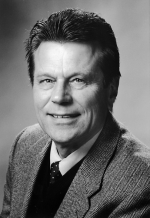Robert F. Boruch University of Pennsylvania, USA
Before coming to the University of Pennsylvania in 1989, Dr. Boruch was a member of Northwestern University’s faculty. He has served on the Board of Trustees for the W. T. Grant Foundation and the Board of Advisors for the National Science Foundation’s Education and Human Resources Division. He currently serves on the Board of Directors for the American Institutes for Research. He has served on advisory committees for the U.S. Department of Education, Government Accountability Office, National Center for Educational Statistics, National Institutes of Health, and other federal agencies. He has served on advisory committees for the U.S. Department of Education, Government Accountability Office, National Center for Educational Statistics, National Institutes of Health, and other federal agencies. He has most recently served on the National Academy of Sciences Committee on Field Evaluation of Behavioral and Cognitive Science Based Methods and Tools for Intelligence and Counter Intelligence, and has served on numerous NAS committees including on AIDS Prevention Programs, Noise Impact of the Concorde, Privacy in the U.S Census, and Scientific Principles in Education Research. Dr. Boruch is also on the advisory boards of the Coalition for Evidence Based Policy and the Board of Directors of the Society for Research on Educational Effectiveness and serves on the editorial boards of Evaluation Review, Journal of Experimental Criminology, and the Journal of Research on Educational Effectiveness.Dr. Boruch is an elected fellow of the American Academy of Arts and Sciences, the Academy for Experimental Criminology, the American Educational Research Association, and the American Statistical Association. He has been a senior fellow at the Center for Advanced Studies in the Behavioral Sciences (Stanford) and at the Rockefeller Foundation’s Bellagio Study Center and a visiting fellow at research centers in Berlin, Mannheim, and Munich. He has also received awards for his work from the American Educational Research Association, the Policy Sciences Organization, the American Evaluation Association, and the international Campbell Collaboration. The Campbell Collaboration has named an award in his honor for individuals who contribute to the use of better evidence in policy.
